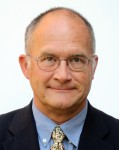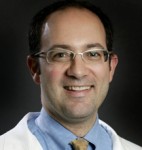 I attended the University of Louisville Board of Trustees meeting yesterday. There was one major item on the published agenda that I wanted to follow, and one not on the agenda that I had hoped to see. Others have reported on additional business conducted by the Board yesterday. What I was most interested in was how the University and Board were going to handle the two-page draft document presented at a committee meeting in January that brought to a head increasing public concern, reinforced by some board members, that they were not being given the information needed, nor the opportunity to discuss issues central to the Board’s legislatively-mandated oversight responsibilities.
I attended the University of Louisville Board of Trustees meeting yesterday. There was one major item on the published agenda that I wanted to follow, and one not on the agenda that I had hoped to see. Others have reported on additional business conducted by the Board yesterday. What I was most interested in was how the University and Board were going to handle the two-page draft document presented at a committee meeting in January that brought to a head increasing public concern, reinforced by some board members, that they were not being given the information needed, nor the opportunity to discuss issues central to the Board’s legislatively-mandated oversight responsibilities.
Dissidents or public heroes?
The response announced by Board Chairman Robert Hughes was that he was forming an Ad Hoc Committee on Governance on which any interested Board member was invited to participate. He hoped to come to some kind of charge or product in the next 4 to 6 months, presumably coinciding with the time left in his current term as Chairman of the Board. There was no comment from anyone in the room.
Constructive solution or not?
On first blush, it might be said that the important issues on the table are not being swept off under the rug as I feared might have been the case by lack of inclusion on the agenda. On reflection, I have concerns that this approach is not the right one. In the first place, offering committee membership to the “interested,” opens the door to skeptics like me who wonder if this tactic is merely a way to allow board members with concerns to ventilate ineffectively. Would the committee meetings or their minutes be public? Public or not, deciding to join a volunteer-only committee could be taken as an indication of having picked a side and be detrimental to intra-board relationships. No board member should feel any degree of intimidation in stepping forward to suggest that Chairman Hughes might not be correct when he asserts that everything is going well and no meddling is needed, or acknowledging that the community has a right to greater accountability from this public institution. It is the Board as a whole has this latter mandate, not a few self-selected individuals. The rest of us need a clear signal from the University that they are taking this matter seriously and that this is not a fig leaf, ad hoc, off-the-agenda, or less than mainstream fix. Continue reading “UofL Board of Trustees Addresses Governance and Faculty Practice Plan.”


